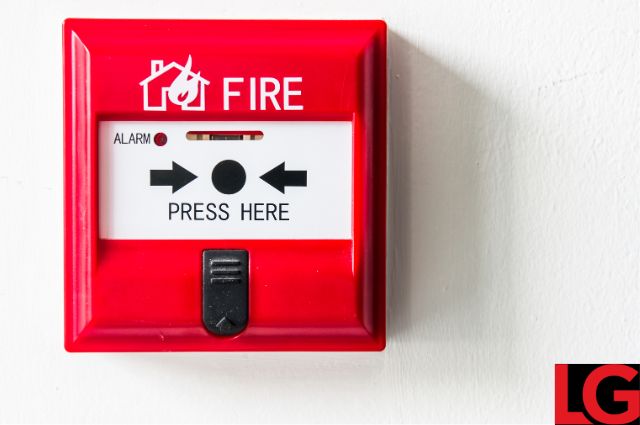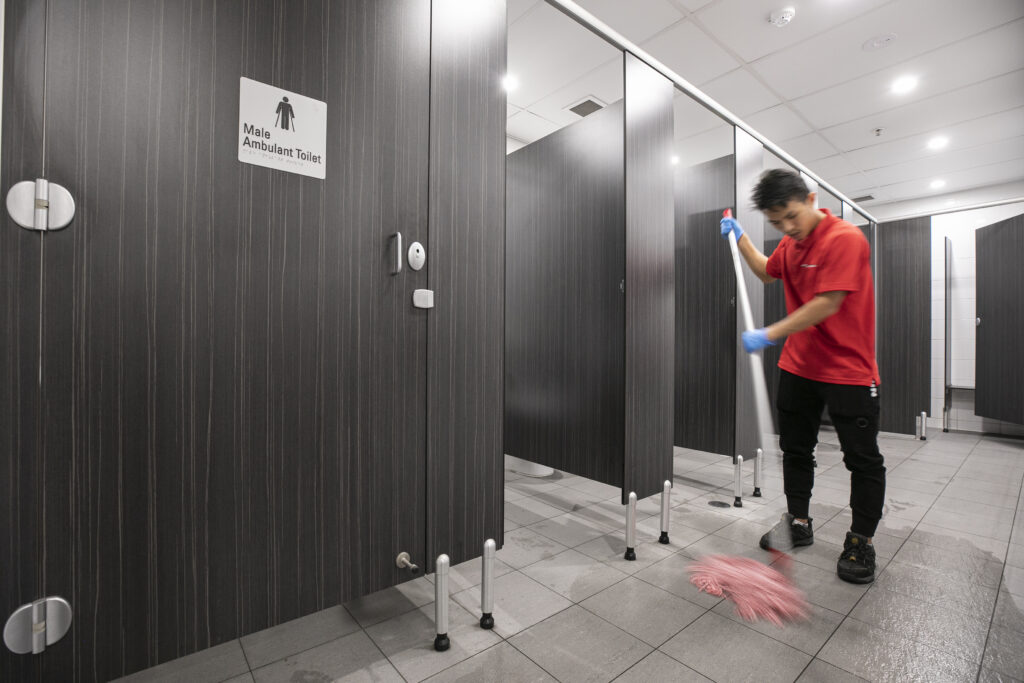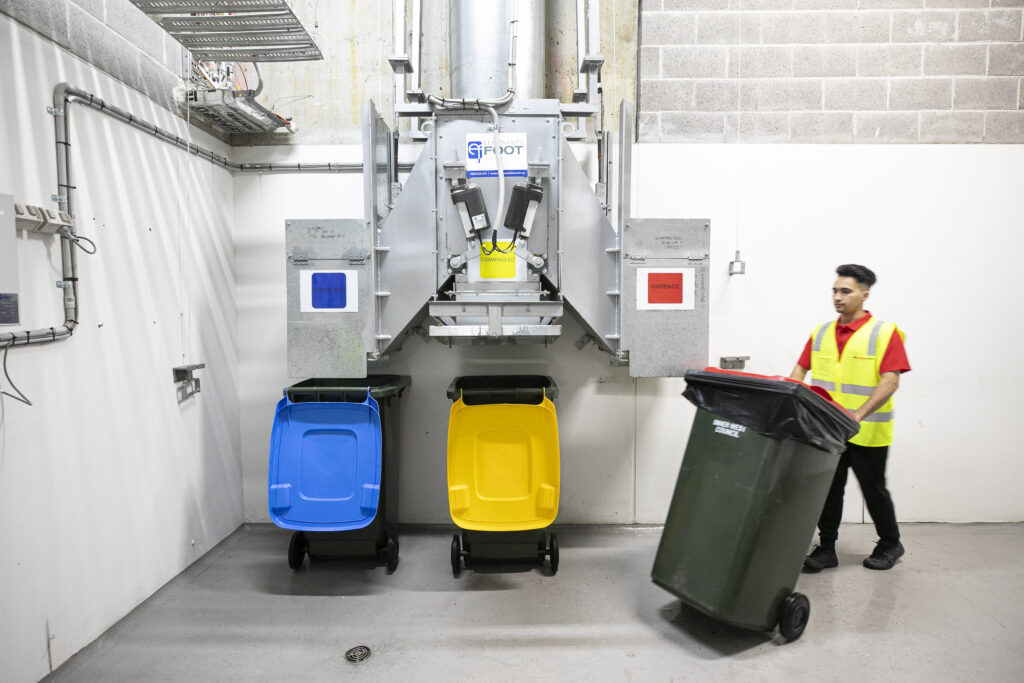As facilities management professionals with decades of experience, we’ve seen first-hand how the interplay between hard and soft services can make or break a building’s functionality and user satisfaction. Read on to discover the important nuances of these two critical aspects of facilities management.
Understanding Hard Facilities Management
Hard facilities management focuses on the physical components of a building. It encompasses all the tangible elements that keep a structure operational and safe.
Core Components of Hard FM
Building Structure and Fabric
The building’s she’ll and core form the foundation of hard FM. This includes walls, roofs, floors, and structural elements.
Regular inspections and maintenance prevent deterioration and confirm the building stays structurally sound.
Mechanical Systems
HVAC (Heating, Ventilation, and Air Conditioning) systems are crucial for maintaining a comfortable indoor environment. These complex systems need regular servicing to operate efficiently and follow health and safety regulations.
Electrical Systems
From lighting to power distribution, electrical systems are the lifeblood of modern buildings. Hard FM confirms these systems are safe, effective, and up to code.
Plumbing and Water Systems
Water supply, drainage, and sanitation fall under hard FM. This includes maintaining pipes, fixing leaks, and ensuring water quality meets required standards.
Fire Safety Systems
Sprinklers, alarms, and fire suppression systems are critical for building safety. Regular testing and maintenance are non-negotiable aspects of hard FM.

Elevators and Escalators
In multi-story buildings, vertical transportation systems need specialized maintenance to confirm safety and reliability.
The Importance of Preventive Maintenance
Preventive maintenance forms the backbone of effective hard FM. By addressing potential issues before they escalate, facilities managers can:
- Extend the lifespan of building systems
- Reduce unexpected breakdowns and disruptions
- Optimise energy efficiency
- Ensure compliance with regulations
- Control long-term costs
Implementing a robust preventive maintenance schedule requires careful planning and resource allocation. It’s a balancing act between minimizing disruptions to daily operations and ensuring all systems receive necessary attention.
Technology in Hard FM
Advancements in technology have revolutionized hard FM practices. Building Management Systems (BMS) allow for real-time monitoring and control of various building systems.
Internet of Things (IoT) sensors provide valuable data on equipment performance, enabling predictive maintenance.
Computer-Aided Facility Management (CAFM) software streamlines work order management, asset tracking, and maintenance scheduling. These tools empower facilities managers to make data-driven decisions and improve resource allocation.
Exploring Soft Facilities Management
Soft facilities management addresses the human aspects of building operations. It focuses on creating a positive experience for occupants and visitors.
Key Areas of Soft FM
Cleaning Services
A clean environment is essential for occupant health, productivity, and satisfaction. Soft FM confirms regular cleaning schedules, waste management, and maintenance of hygiene standards.

Security Services
Building security encompasses physical security personnel, access control systems, and surveillance. Soft FM balances security measures with user convenience to create a safe yet welcoming environment.
Reception and Concierge Services
First impressions matter. Reception services set the tone for visitor experience and play a crucial role in building management.
Concierge services can elevate the user experience in high-end facilities.
Landscaping and Grounds Maintenance
External areas contribute to the overall aesthetics and functionality of a facility. Well-maintained grounds enhance the building’s appeal and provide pleasant outdoor spaces for occupants.
Space Management
Efficient use of available space falls under soft FM. This includes space planning, moves and changes, and ensuring the layout supports occupant needs and organizational goals.
Waste Management and Recycling
Implementing effective waste management and recycling programs is crucial for sustainability and compliance with environmental regulations.

The Human Touch in Soft FM
Soft FM requires strong interpersonal skills and an understanding of customer service principles. Facilities managers must:
- Communicate effectively with diverse stakeholders
- Anticipate and respond to occupant needs
- Handle complaints and resolve conflicts
- Foster a positive workplace culture
- Adapt services to changing organizational requirements
Measuring Soft FM Performance
Unlike hard FM, where performance can often be measured in quantitative terms (e.g., energy efficiency, equipment uptime), soft FM relies more on qualitative assessments. Common methods include:
- User satisfaction surveys
- Mystery shopper evaluations
- Key Performance Indicators (KPIs) for specific services
- Feedback mechanisms for occupants and visitors
Regular assessment and adjustment of soft FM services confirm they remain aligned with occupant expectations and organizational goals.
The Synergy Between Hard and Soft FM
While hard and soft FM have distinct focuses, they are deeply interconnected in practice. Effective facilities management requires a holistic approach that combines both aspects seamlessly.
Examples of Hard and Soft FM Integration
- Energy Management: Hard FM applies energy-efficient systems, while soft FM educates occupants on energy-saving behaviours.
- Space Utilisation: Hard FM maintains the physical infrastructure, while soft FM optimises space allocation based on occupant needs.
- Indoor Air Quality: Hard FM maintains HVAC systems, while soft FM applies policies on smoking, use of fragrances, and green cleaning products.
- Emergency Preparedness: Hard FM confirms safety systems are operational, while soft FM conducts drills and trains occupants on emergency procedures.
Challenges in Integrating Hard and Soft FM
- Communication Barriers: Technical teams (hard FM) and customer-facing teams (soft FM) may have different priorities and communication styles.
- Budget Allocation: Balancing investment between hard and soft FM can be challenging, especially when facing budget constraints.
- Performance Measurement: Developing comprehensive metrics that capture both hard and soft FM performance requires careful consideration.
- Skill Set Differences: Managers overseeing both areas need a diverse skill set spanning technical knowledge and people management.
- Vendor Management: When outsourcing, coordinating multiple vendors for hard and soft FM services can be complex.
Strategies for Effective Integration
- Cross-functional Teams: Create teams that include both hard and soft FM professionals to foster collaboration and knowledge sharing.
- Integrated Technology Platforms: Implement CAFM systems that encompass both hard and soft FM functions for better coordination.
- Holistic Training Programs: Provide training that covers both technical aspects and customer service skills to all FM staff.
- Regular Stakeholder Meetings: Conduct meetings that bring together representatives from both hard and soft FM to align priorities and share insights.
- Unified Reporting Structure: Develop reporting mechanisms that provide a comprehensive view of both hard and soft FM performance.
People Also Asked
What is the difference between hard and soft facilities management?
Hard facilities management focuses on the physical aspects of a building, including maintenance of structures, systems, and equipment. Soft facilities management deals with services that directly impact occupant experience, such as cleaning, security, and catering.
How do you measure the effectiveness of facilities management?
Effectiveness of facilities management is measured through various metrics including equipment uptime, energy efficiency, occupant satisfaction surveys, response times to maintenance requests, and compliance with health and safety regulations.
What qualifications are needed for a career in facilities management?
Common qualifications for facilities management include degrees in engineering, business administration, or facility management. Professional certifications are also available in your local region.
What are the biggest challenges in facilities management today?
Major challenges in facilities management include balancing cost-effectiveness with service quality, adapting to rapidly changing technologies, managing diverse stakeholder expectations, ensuring regulatory compliance, and addressing sustainability concerns.
How does facilities management contribute to employee productivity?
Facilities management contributes to employee productivity by creating comfortable, safe, and effective work environments, maintaining essential services and equipment, and implementing workspace designs that support collaboration and person work needs.
What is the importance of preventive maintenance in facilities management?
Preventive maintenance is crucial in facilities management as it helps prevent unexpected breakdowns, extends the lifespan of equipment, reduces overall maintenance costs, and confirms consistent performance of building systems.
How do facilities managers balance the needs of different stakeholders?
Facilities managers balance stakeholder needs through effective communication, regular feedback collection, prioritizing based on organizational goals, and implementing flexible solutions that can accommodate diverse requirements.
Key Takeaways
- Hard FM focuses on physical building components and systems, while soft FM addresses services that impact occupant experience.
- Effective facilities management requires a holistic approach that combines both hard and soft FM practices.
- Technology plays an increasingly important role in both aspects of FM, enabling more effective and data-driven management.
- Sustainability and occupant well-being are becoming central concerns in modern facilities management.
- The future of FM will need professionals to develop a diverse skill set spanning technical knowledge, data analysis, and people management.
Looking for an experienced Facilities Manager that can tailor hard and soft FM services to your needs? Contact Landon Group today!
Keep Your Facility at Its Best
Looking to stay ahead in maintaining exceptional facilities? Explore these related resources:
–9 Signs of an Excellent Commercial Cleaner – Spot the traits that separate the good from the great.
–Factory and Warehouse Cleaning Techniques – Learn the secrets to tackling even the toughest industrial cleaning challenges.
–Top Preventative Property Management Actions for Facilities Managers – Discover proactive steps to keep your property in top shape.
These blogs are filled with actionable insights to help you make informed choices and uphold the highest standards for your facility. Dive in today!
